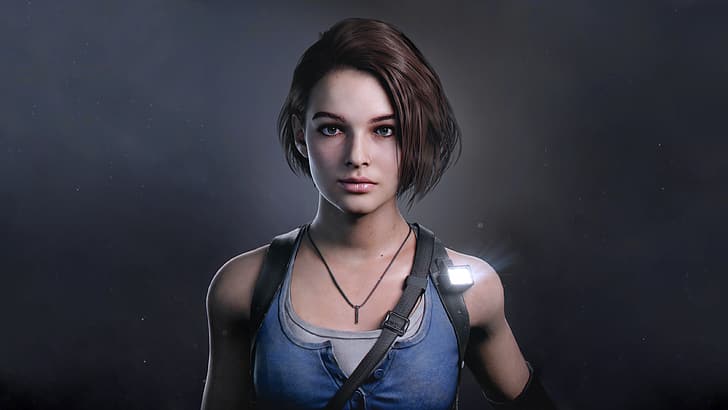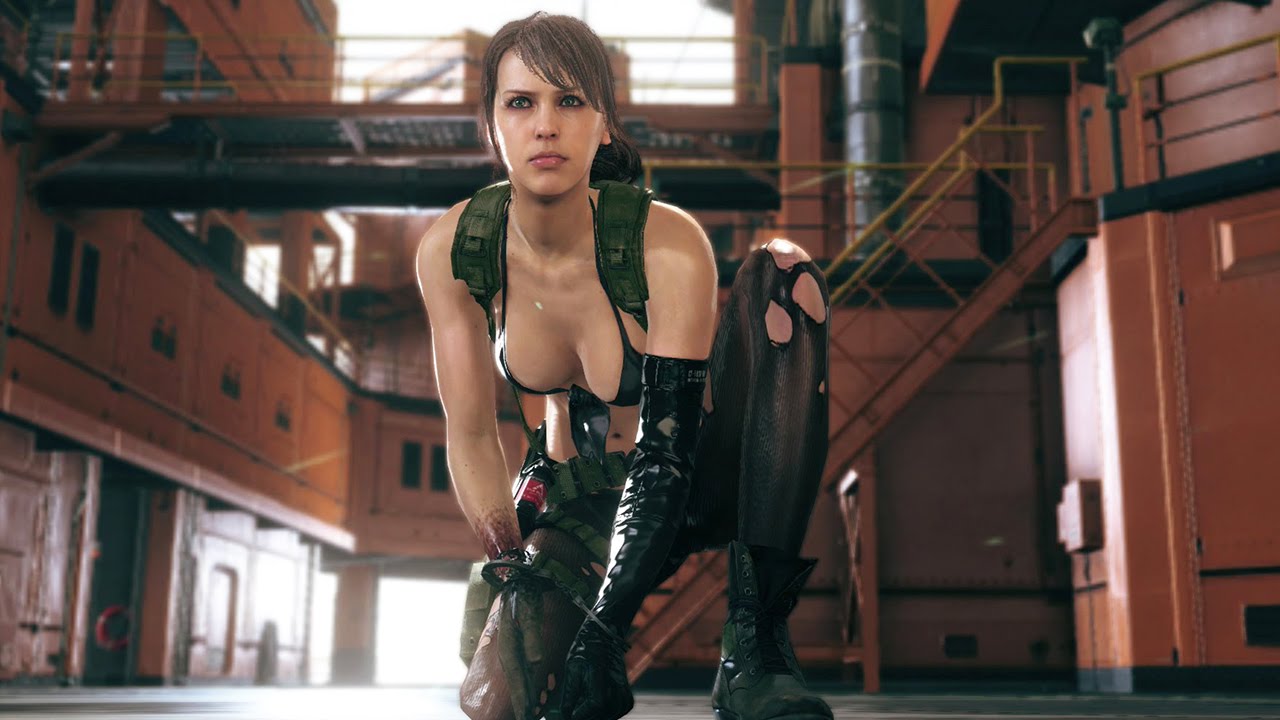KOJIMA SAYS BACK STORIES JUSTIFY SEXUALIZATION, BUT THERE’S MORE TO IT THAN THAT
Every year, a debate almost as old as video games seems to rear its head: is objectification OK, mainly toward female characters? In a recent interview with BBC Radio 1 Newsbeat, Hideo Kojima said, “What I really want to avoid is, like you see in some games, characters with big breasts with no back story. If I make characters that at first glance might look like this then they’ll have a deep background story to give a specific reason why.”
While some games aim more toward realistic characterizations, others prefer the outlandish. Sometimes that can mean very little clothes and huge… assets. Here’s where the debate lies. Do games need to justify clothing choices for characters, though? Does giving a dramatic back story suitably justify for big breasts and little clothing? No, not really.
JUSTIFYING CLOTHING CHOICES
While it sounds as if Kojima is aiming toward something noble, this doesn’t explain some of his past choices. Take for instance the way he approached the modeling and characterization of Metal Gear Solid V’s expert assassin, Quiet. After the release of MGSV, there was massive backlash regarding her character and the questionable explanation for her attire. According to the story, a parasite treatment caused her to breathe through her skin while also rendering her mute – hence her name. For some, the narrative explanation fell short and was an overreach to explain her over-sexualization for others.
PRACTICAL VS. CHOICES
It’s context, not backstory. Having a reason behind the way a character dresses can be important, but to suggest that a character needs some deep backstory to justify the size of their breasts seems a bit absurd. Conversely, the idea that fleshing out a character may somehow rectify their gross over-sexualization seems counterproductive to the medium’s need for realistic and diverse representation.

That isn’t to say that a little – or in some cases a lot – of skin isn’t called for within a game. In the Devil May Cry reboot when Dante answered the door naked without a care in the world, that’s Dante’s character. He’s a free spirit and ever since the original series has disliked putting on too much clothing. The context seems simple, but it plays easier and more realistic than an argument that somehow his nudity made him more viable.
Jill Valentine wears her uniform for Resident Evil 1, but when we see her again in Resident Evil 3, she’s wearing a strapless tank-top and a short skirt. Yes, she shows off more skin, but Capcom gave it context. Jill had been out on a date. And since then, her costumes have always been attractive but covered. Good idea considering exposed skin means more places for a zombie to bite.
Still other games manage to make interesting, female characters with deep backstories without the need to parade their bodies in front of the player at all times. Female Commander Shepard in Mass Effect properly dresses for her job. The armor for female characters in Destiny covers just as much as their male counterparts, and still look great.
Developers should aim to create characters with clothing choices that support the realism of the narrative. For Quiet, the nudity isn’t the issue. It’s Kojima’s attempt to shoehorn a narrative around the decision for he to show skin that doesn’t sit well. While the Metal Gear franchise has its fair share of over-the-top plot points, it still grounds itself on realistic depictions of espionage. Claiming a parasite treatment forces a military operative to breathe through her skin thus leading her to wear practically nothing into battle— as if air doesn’t pass through clothing — is flimsy at best. Context that would have worked for Quiet’s dress? Bullet-proof skin.
FOCUS ON STORY, NOT ON CLOTHING
In the end, sex sells. But unfortunately, in an industry desperately wanting those outside of it to consider it art, the best and brightest, like Kojima, shouldn’t bank on their scantily clad women selling their games. In the case of Quiet, it seemed as though the narrative worked backward from her clothing choice rather than the story dictating her attire. How does the old saying go? If the shoe fits, wear it? Well, in gaming, if the outfit fits the job, it may be best to just put your character in that.







